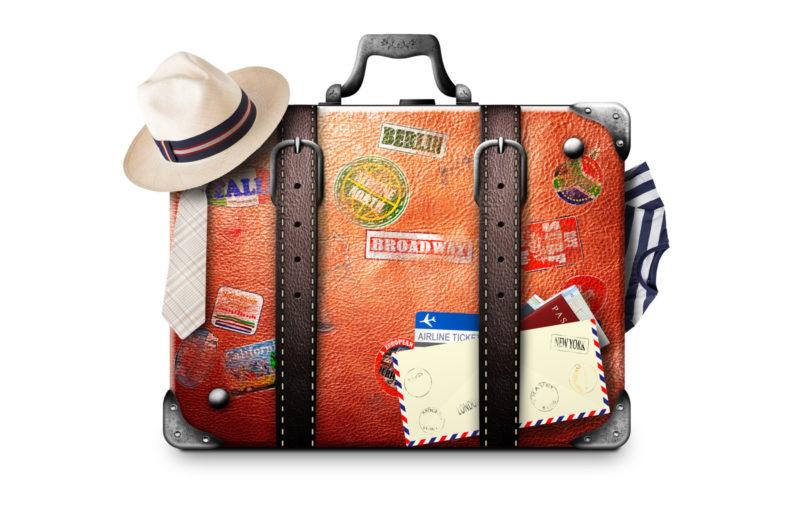A Stay-At-Home Summer Travelogue

I have had to cancel 10 trips, because of the coronavirus lockdown. Australia, Canada, Chile, and Germany, four of my favorite places, as well as some trips in the U.S. Like you, I’m at home, and not entirely happy about it.
We are moving toward the strangest summer in memory—reminiscent in some ways of the “polio summers” of the 1950s, when people stayed indoors and avoided all social contact. So I thought I’d take a break from economic analysis and remind us all, including myself, of the joys that come from encountering other people and other cultures.
To take a break from worrying, and from feeling bad about missing my trips, I wanted to offer one cultural insight about each of the four countries where I had to cancel trips. Culture and norms ultimately matter more than laws and regulations. Each of my four examples illustrates some quirks that provide an insight into the national character.
Australia: The most republican-egalitarian place I’ve ever visited. No one gets to think, or act like, they are somehow “better” than anyone else. You can be rich, you can be better educated, and that’s all okay. Fortunately, I’m from the American south, the second most republican-egalitarian place I’ve seen.
In the south, the greatest sin is “getting’ above your raisin,’” or acting privileged. So when I’m in Australia I know to sit up front in the Uber, and make a point of talking to the driver. Some have even made a point of saying, “When I heard your accent, I was surprised you knew to sit up front. Most Americans want to sit in back like royalty.” And you should at least pretend to get your own luggage: it’s honorable to be a bogan, but never a bludger.
One way this attitude manifests itself is shortening words. Many, many words, more than any other country, to the point where it’s frustrating. Knowing that there’s someone there who doesn’t speak Australian, they may give you a break, but it’s clear you are asking for a concession, just as if you were in France and an entire dinner party had to speak English for your sake.
Often you can puzzle out the meaning from context: “Didn’t have time to get brekkie at the servo; had a cuppa on the run. Will stop by Macca’s in the arvo.” (No time for breakfast at the service station, had some tea, and I’ll go to McDonald’s this afternoon.) Once you realize that tolerating this lopping off of word endings is a social obligation, you’ll understand it functions as a kind of shibboleth, a shared code of cultural membership.
Canada: In Canada, an ostensibly English-speaking country, you might hear this: “So, we had so many Caesars were hungry, and went out for donair. Man, I was calling for O’Rourke the rest of the night.” Donair seems like it might be related to “doner kebap,” which is actually delicious. It’s true, that is the distant origin of donair. But, something horrible happened on the trip to Canada (donair landed in Halifax, it appears). The “authentic” version, which starts out like a gyro or shawarma, but then goes completely off the rails with a sauce made from (I’m not making this up) evaporated milk, sugar, garlic, and vinegar. Yeesh.
A Caesar seems like something familiar, but with a nightmare twist. You know how people use a bloody mary to nurse a hangover? Some Canadian with a perverse sense of humor thought, “You know what a hangover cure needs? Clam juice!” Because nothing says “soothe troubled stomach and spirit” like the fluids that leak out of live-boiled bivalves.
I expect that no explanation is needed for why an evening that starts with Caesars then stops off for donairs would end with “calling for O’Rourke.” Just say it in a deep voice, at the back of your throat, and hope that one of your friends holds your hair out of the way.
Chile: Officially, Chileans speak Spanish. But don’t be fooled; that’s like saying a person born in Brooklyn in 1945 speaks English; it’s not the same. Chileans elide the “s” sound at the end, or even the middle, of many words: “Donde ehta la ehcuela?” There are some words that only exist, as far as I can tell, in Chile.
One very useful phrase is “siempre la misma wea” or “always the same old crap/thing.” It is not a nice phrase, but it’s not exactly obscene, either. Another uniquely Chilean word is siútico: a snobby person who has no cause to be snobby. An English equivalent might be “an empty suit,” which is actually where the word apparently came from, an adaptation of “suit.”
The best uniquely Chilean phrase, by far, is “la bebida bigoteada” or “el bigoteado.” Some older family-style Chilean restaurants might have “el vino de la casa,” where parts or splits of wine that some customers ordered by the glass are poured together and then served as “house wine.” Sensible, nothing wrong with that, as many red blends are sold that way in bottles. But there is an evil twin of “vino del casa:” in the late hours, some of your “friends” notice that you may have had a little too much, and so they get you one more drink, a “bigoteado” (which means something like “strained through the whiskers.”)
They go around to all the nearby tables, with dregs of wine, cocktails, coffee, or whatever. Hopefully some of them have cigarette butts floating in them. (And, this is Chile, they totally DO have floating cigarette butts.) Serving this “drink” to the victim requires a delicate balance: you want to put horrible things in the glass, but not so much that there are visual cues. You have to fish out the cigarette butts, leaving only their delicate bouquet and flavor.
Of course, there is also the overt version, where a group of young men (women would never do this, in my experience) challenge one of their number to chug el bigoteado with full knowledge of the origin and contents, and complete with floating cigarette butts. A crowd gathers; bets may even be made about successful consumption in one chug. The “macho” who accomplishes this feat is briefly a hero, but then spends the rest of the night “calling for O’Rourke” (buitreando, for Chileans).
Germany: I have written extensively about my time in Germany, in my blog, so I will mention only one thing here (well, plus the worst Mexican restaurant in the world, of course). That thing is a concept that, once you hear it, makes you wonder why other cultures lack an analogous word. Because you already know the concept: the sort of person who, when you see their face, makes you want to start slapping.
There are plenty of examples. The most famous recent one is like Martin Shkreli (even if you don’t know who he is, look at this: that mug wants a slap). Others that may come to mind include Senator Charles Schumer (D, NY), or Senator Ted Cruz (R, TX). Or remember “Pajama Boy”? The people who ran that ad were surprised at how many people just wanted to punch his smug onesie-clad face.
Anyway, the point is that most of us have an image, or an actual person we know, who just pushes our buttons from their facial expressions. The German language has a word for that: das backpfeifengesicht. For me, the apotheosis of this concept is Newman, the “no first name” character on the Seinfeld. There was just something about him; Jerry always seemed barely able to restrain himself from slapping Newman.
And of course, that was the joke—Jerry never had a reason to hate Newman. But the guy had a face that made you want to slap him. And the Germans apparently feel this impulse frequently enough that they have a name for it, even though they (like Jerry Seinfeld) may keep the urge to slap under control.
Well, that’s it. Tour’s over. A sorry substitute for actual interactions with human beings, I get that. But it is interesting to remember that one of the reasons we travel, and interact with people different from ourselves, is that we need to remember that things we take for granted could be done differently, and maybe improved. Many things are going to be broken by the end of this summer, but I hope there are some things we can laugh about, too.










